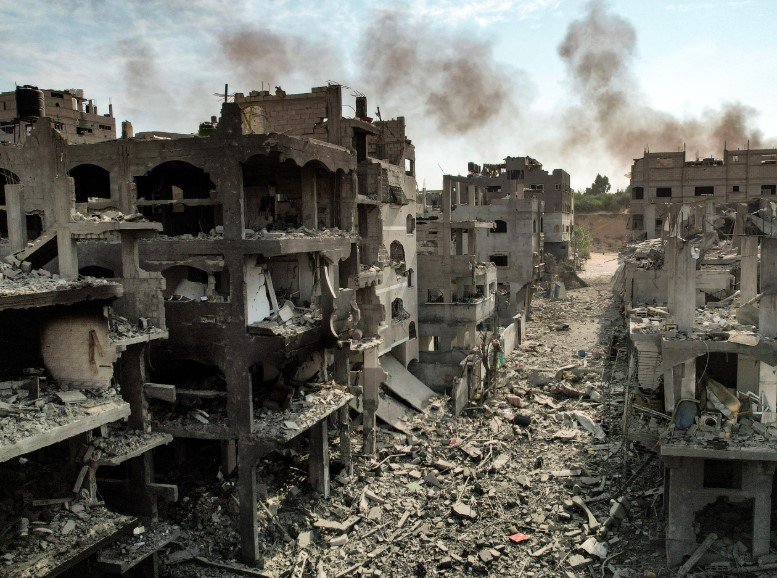Israeli airstrikes and tank shelling relentlessly pounded eastern Gaza City overnight, killing at least 11 people, according to eyewitnesses and medical staff. Meanwhile, Hamas leader Khalil Al-Hayya touched down in Cairo on Tuesday, aiming to jump-start stalled ceasefire talks backed by the US.
Tensions remain sky-high as indirect negotiations held in Qatar last month fell apart without agreement. Both Israel and Hamas blamed each other for the deadlock, with no truce or hostage release deal in sight.
Rising Violence and the Shadow of a New Offensive
The past weeks have been grim. Israeli forces, which briefly controlled Gaza City after the war erupted in October 2023 before pulling back, now signal intentions to retake the area in a sweeping new offensive expected as soon as October.
This looming assault has deepened fears globally and within Israel itself. The Gaza Strip’s population—about 2.2 million—faces growing devastation, hunger, and displacement.
Israeli military leadership has voiced caution publicly. The Chief of Staff warned this operation might jeopardize the lives of hostages held by Hamas and put Israeli troops in peril, calling the plan a possible “death trap.” These warnings highlight the high stakes and complexity of the military and political situation.
For Palestinians in Gaza City, which houses roughly one million people, the prospect of intensified military operations means a renewed wave of hardship and displacement is likely. The suffering is palpable and urgent.
Hamas’s Cairo Mission: Diplomacy Under Pressure
Khalil Al-Hayya’s arrival in Egypt marks a critical moment. Meetings with Egyptian officials were scheduled to kick off Wednesday, focusing on three main issues: halting the conflict, securing humanitarian aid, and alleviating the dire conditions facing Gaza’s residents.

Hamas official Taher al-Nono emphasized that the talks aim to “end the suffering of our people in Gaza,” underscoring the desperation driving this diplomatic push.
Egypt’s role as a mediator remains crucial, given its influence over Gaza’s borders and regional diplomatic weight. Cairo is likely to press both sides for compromise, balancing international pressure with complex local dynamics.
The Global Backlash and Political Frictions
Netanyahu’s plans for Gaza have triggered widespread criticism, not only internationally but also from within Israel. The conflict’s toll on civilians has galvanized protests and diplomatic calls for restraint.
Foreign ministers from 24 nations—including Britain, Canada, and Australia—have condemned the escalating violence and called for urgent humanitarian access. The United Nations and numerous aid groups warn that the crisis in Gaza risks spiraling further out of control.
This diplomatic storm is further complicated by the hostage situation, which remains a key bargaining chip and source of tension. The fate of hostages and the prospect of a negotiated release are deeply entwined with the ceasefire talks, making progress painfully slow.
| Key Players & Positions | Recent Developments | Challenges Ahead |
|---|---|---|
| Israeli Government | Plans to expand military control in Gaza | Risk to hostages and soldiers |
| Hamas Leadership | Engaging in Cairo talks | Balancing ceasefire demands and military pressure |
| Egypt | Mediating between parties | Managing regional stability |
| International Community | Calls for ceasefire and humanitarian aid | Limited leverage on militant groups |
The situation remains fragile, with no quick fix in sight. The humanitarian cost continues to climb as the international community watches anxiously.
What’s Next? Uncertain Days Ahead
With talks resuming in Cairo, the world waits to see if dialogue can break the deadlock or if violence will deepen further.
Questions abound: Will Hamas be able to secure meaningful concessions? Can Israel’s government balance military objectives with political and ethical concerns? And can Egypt successfully broker a deal acceptable to both sides?
For millions living in Gaza, the stakes could not be higher. The hope for peace flickers amid the rubble.
